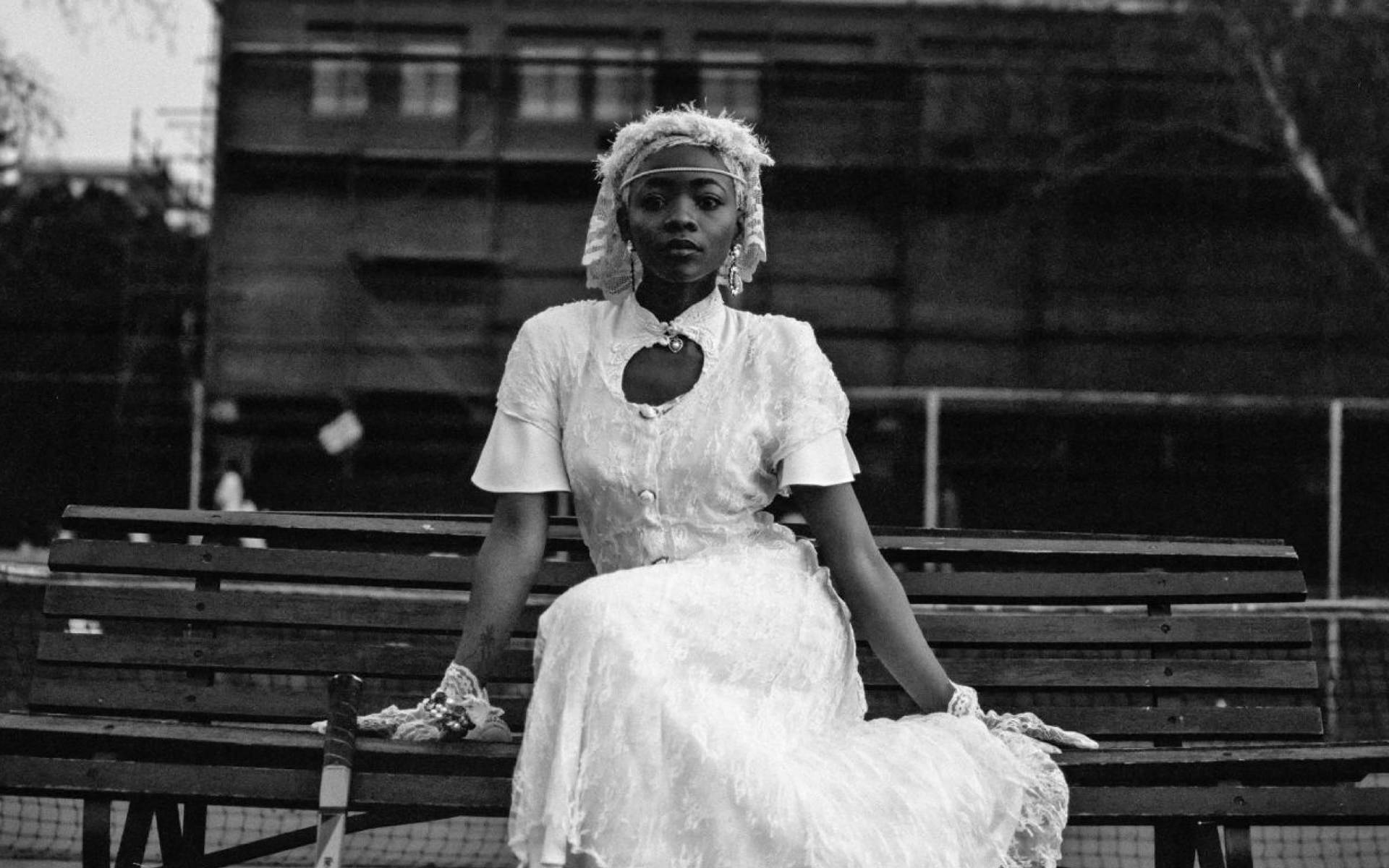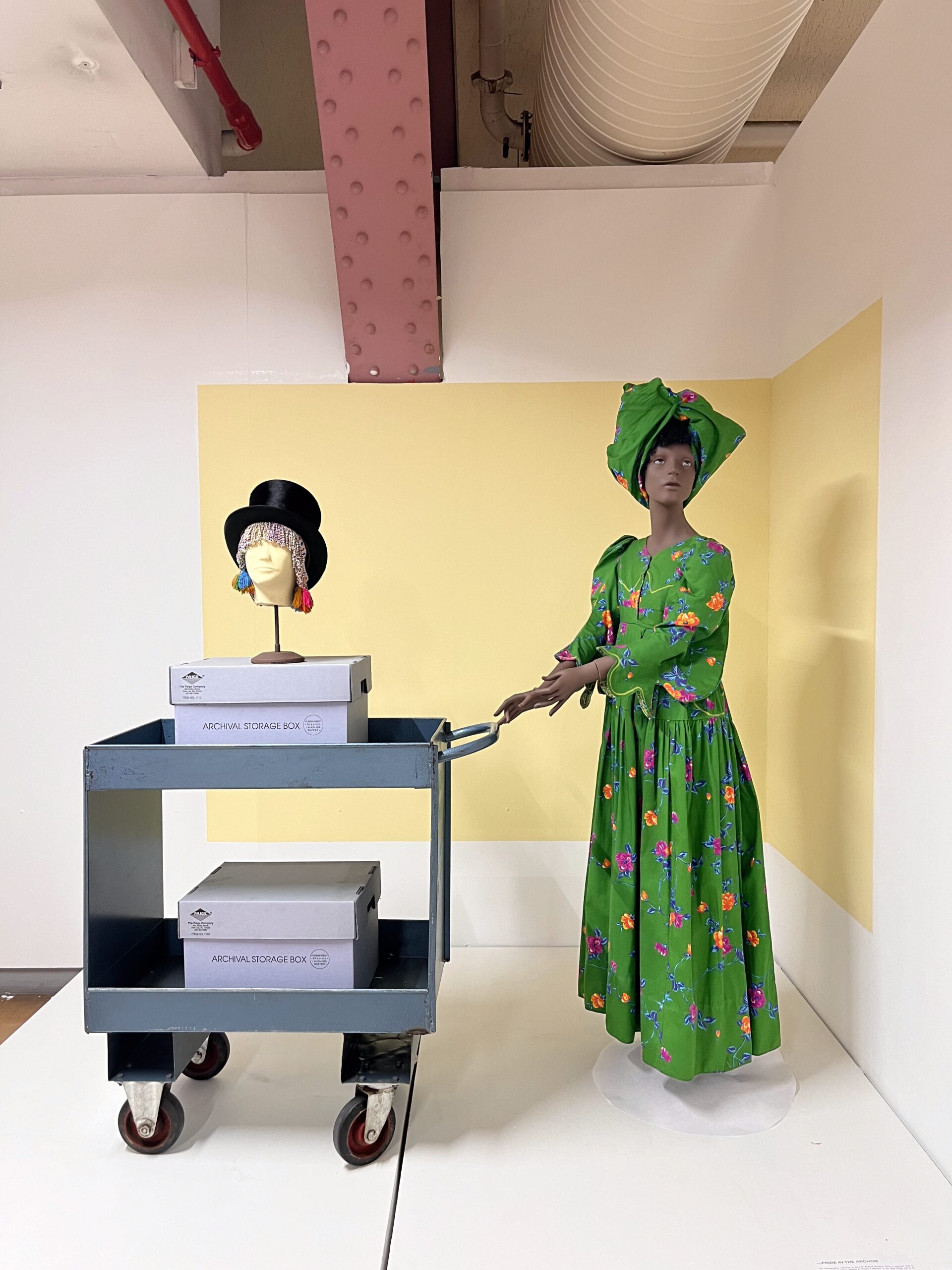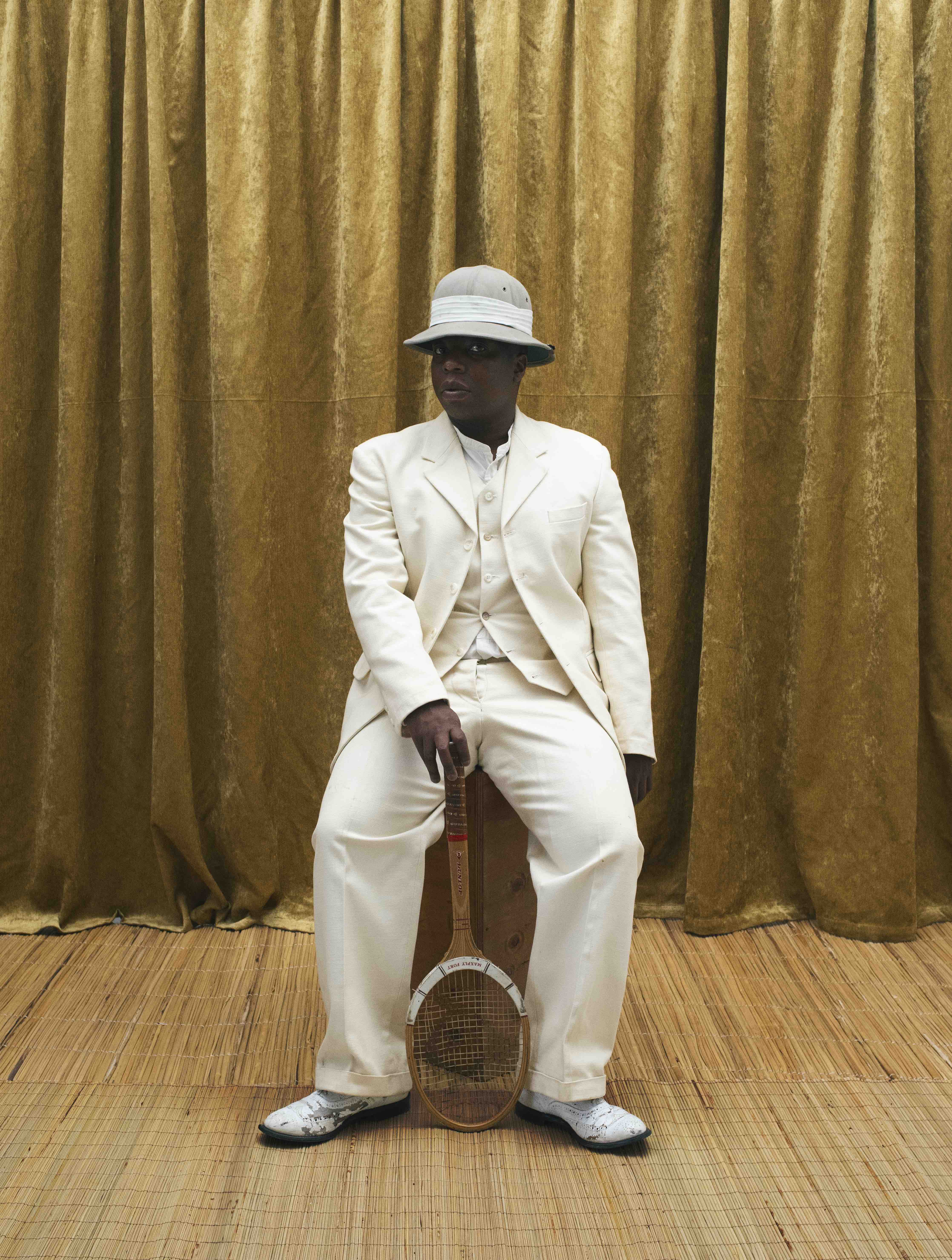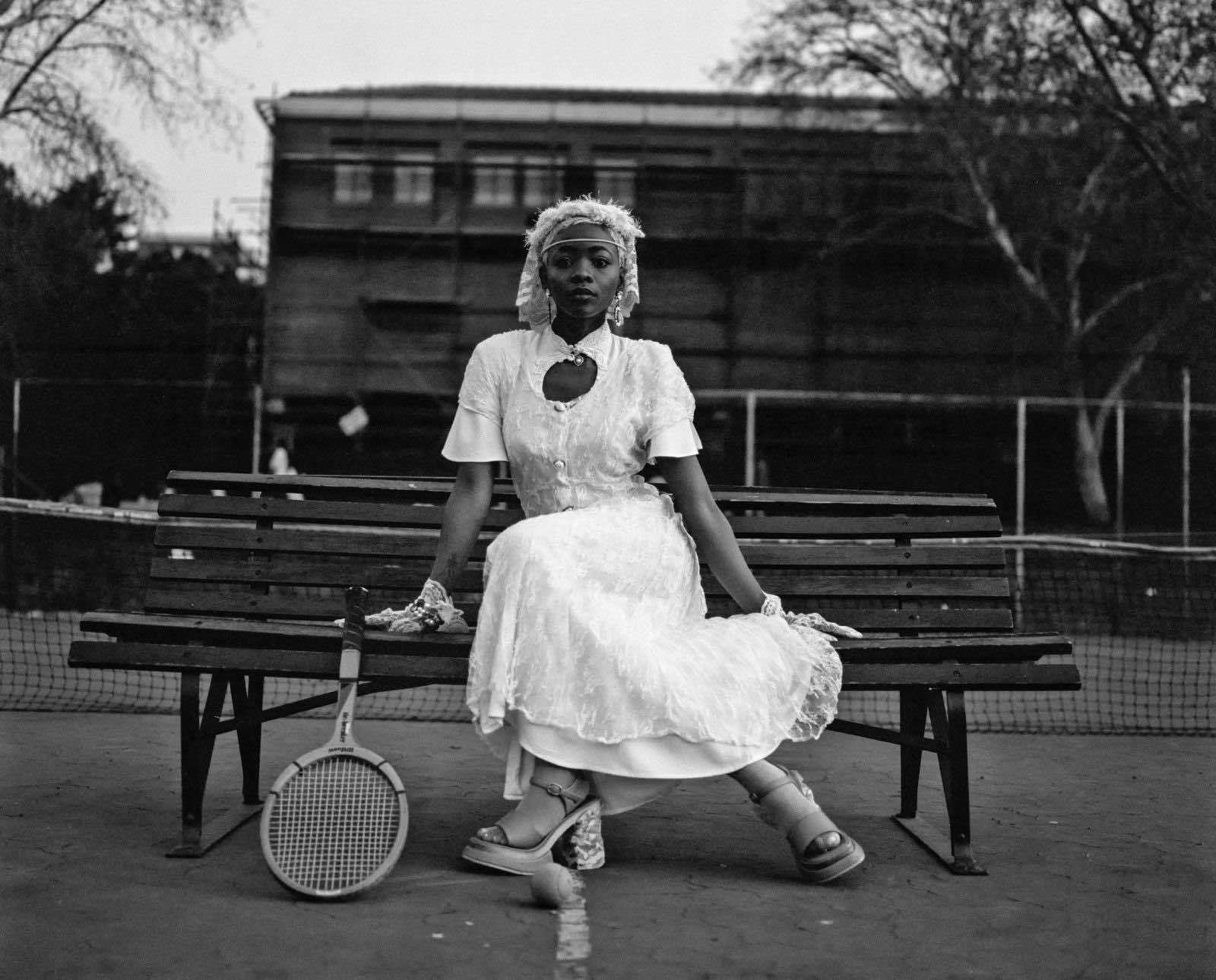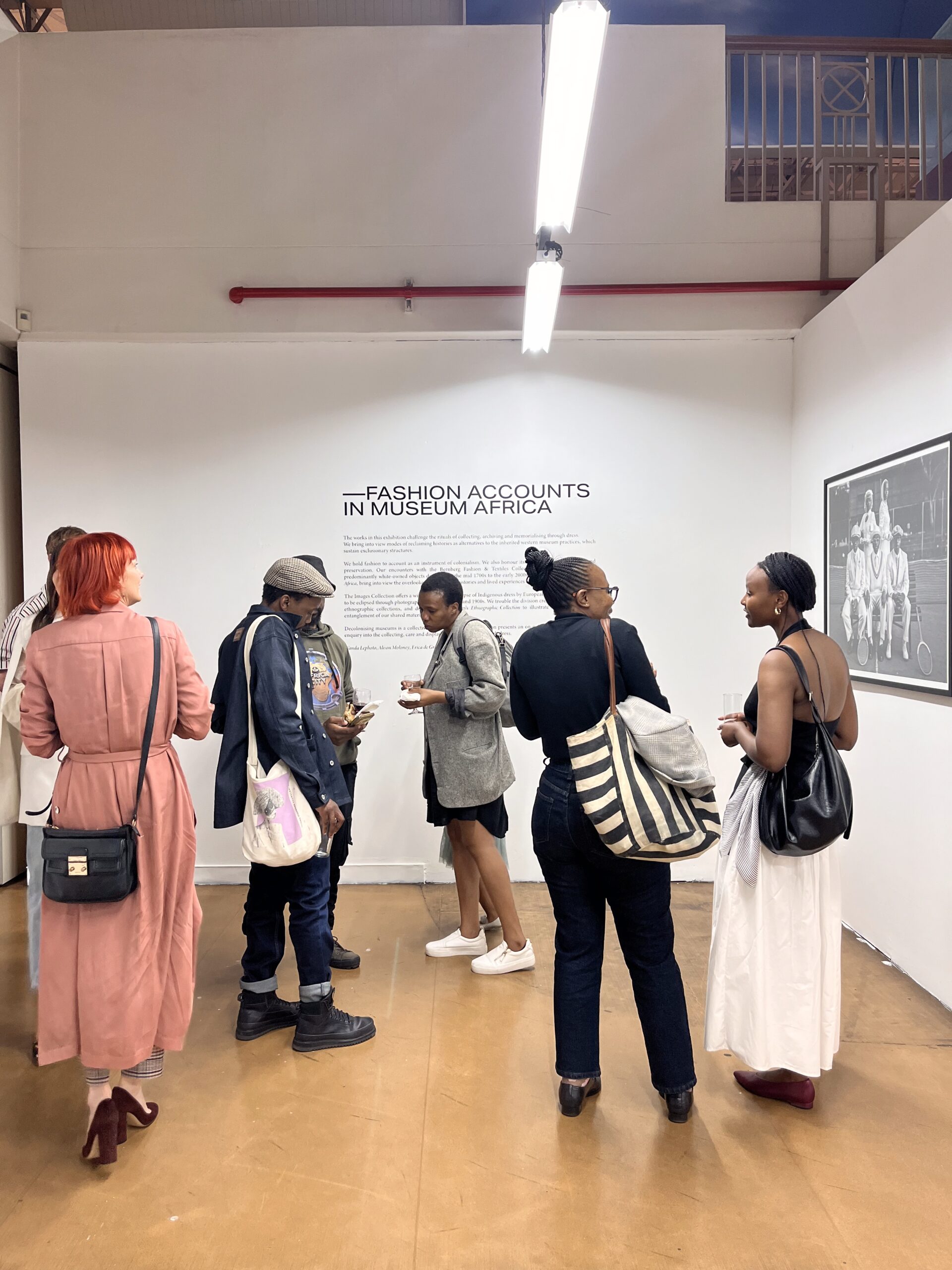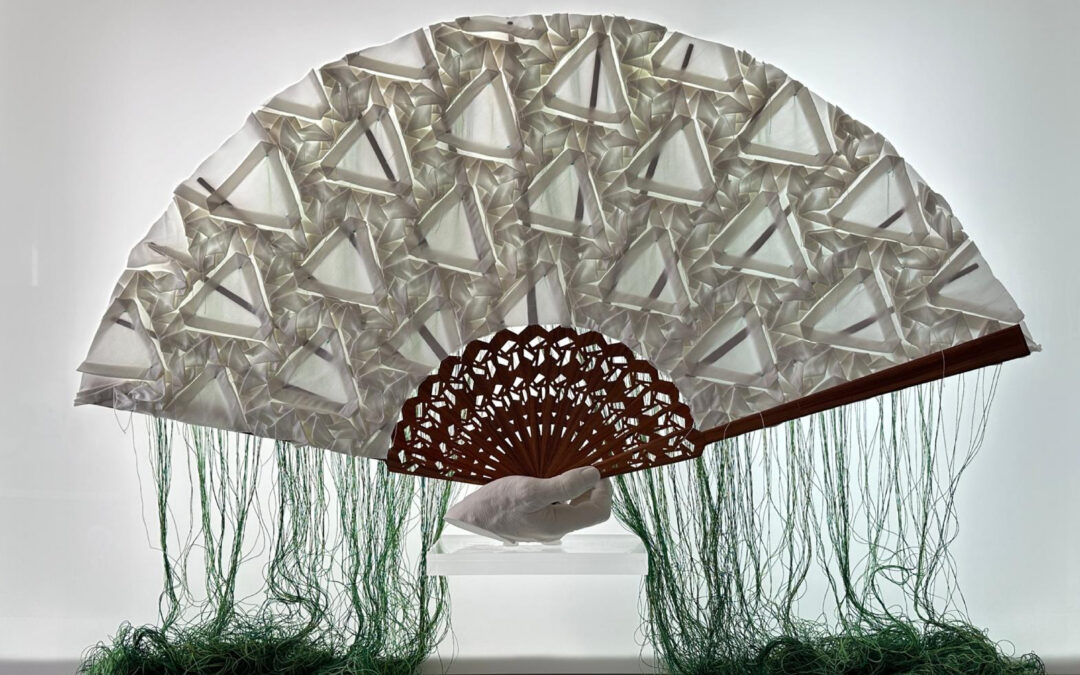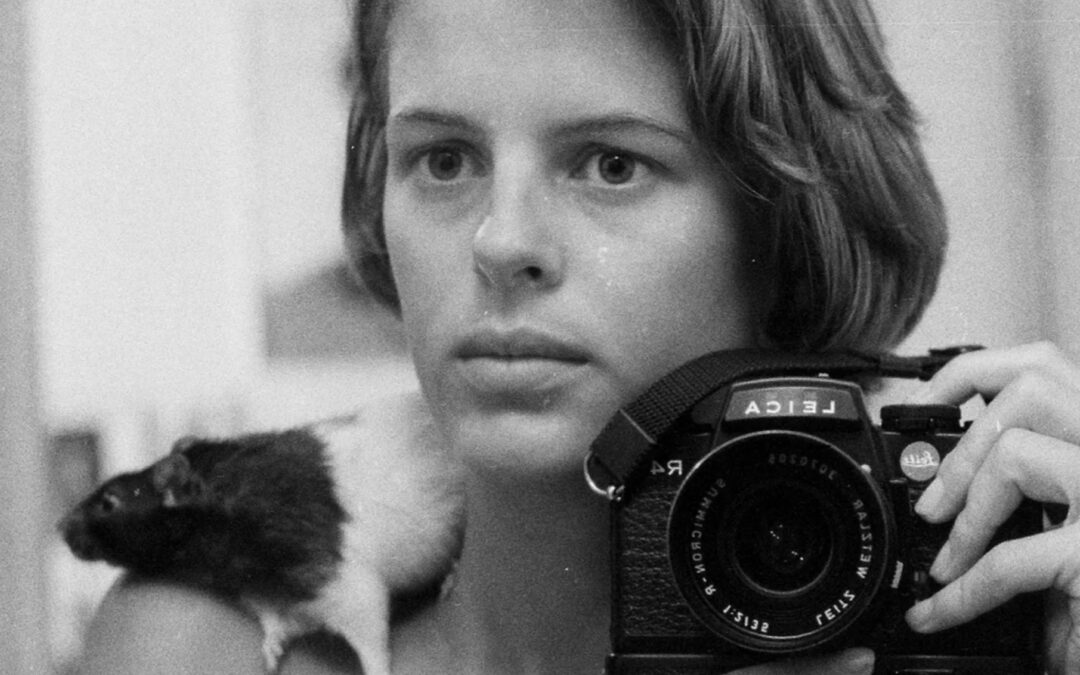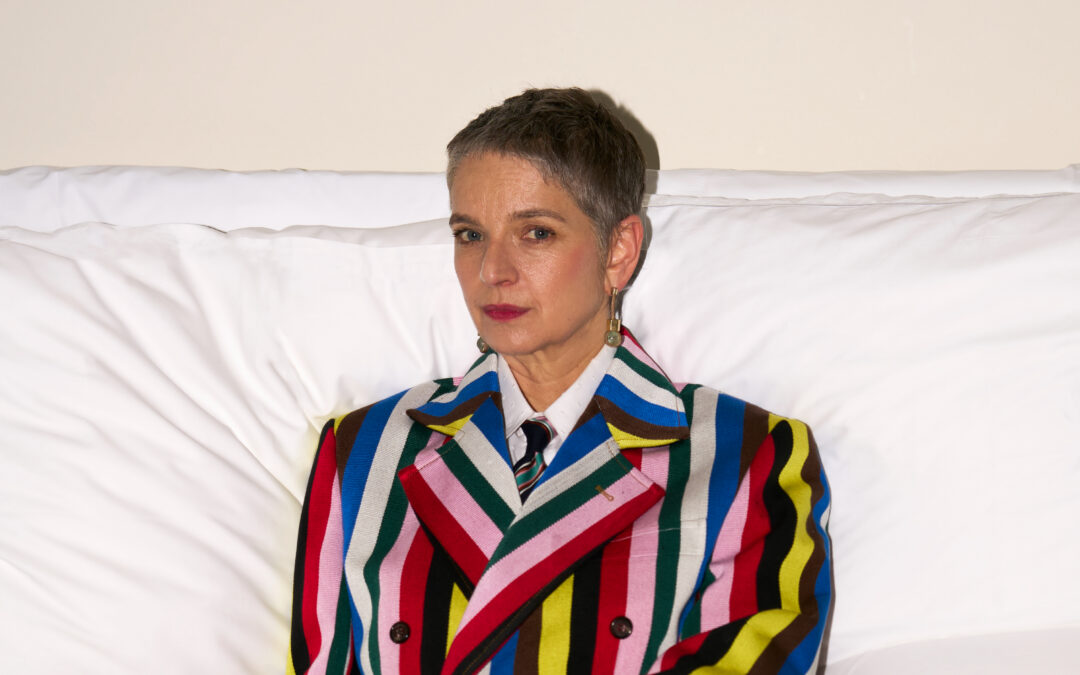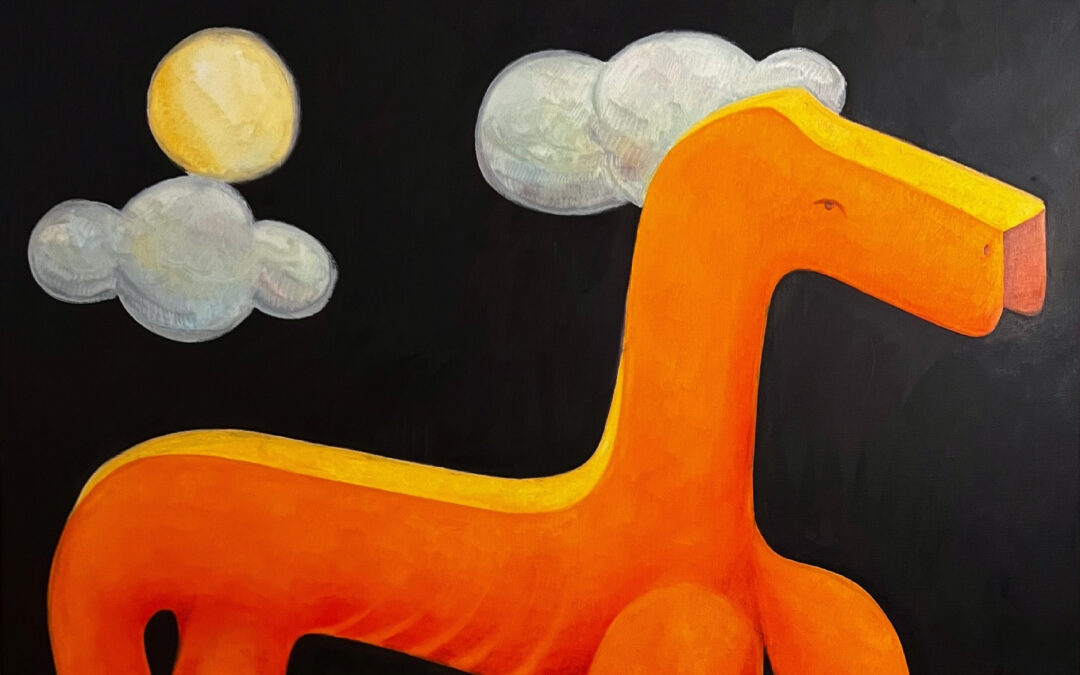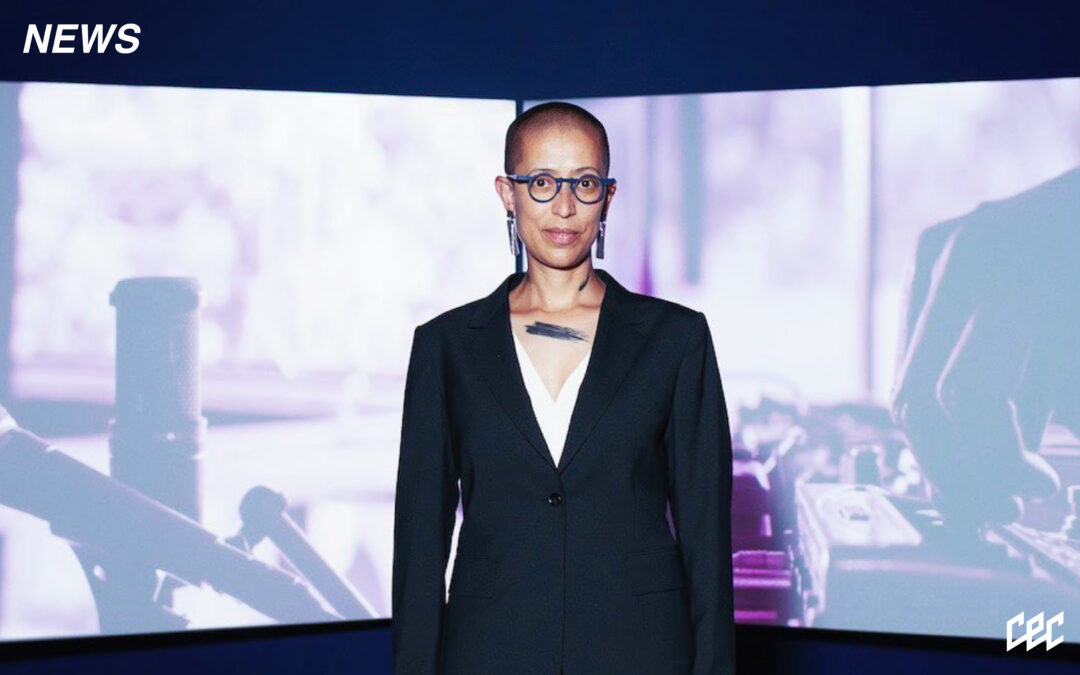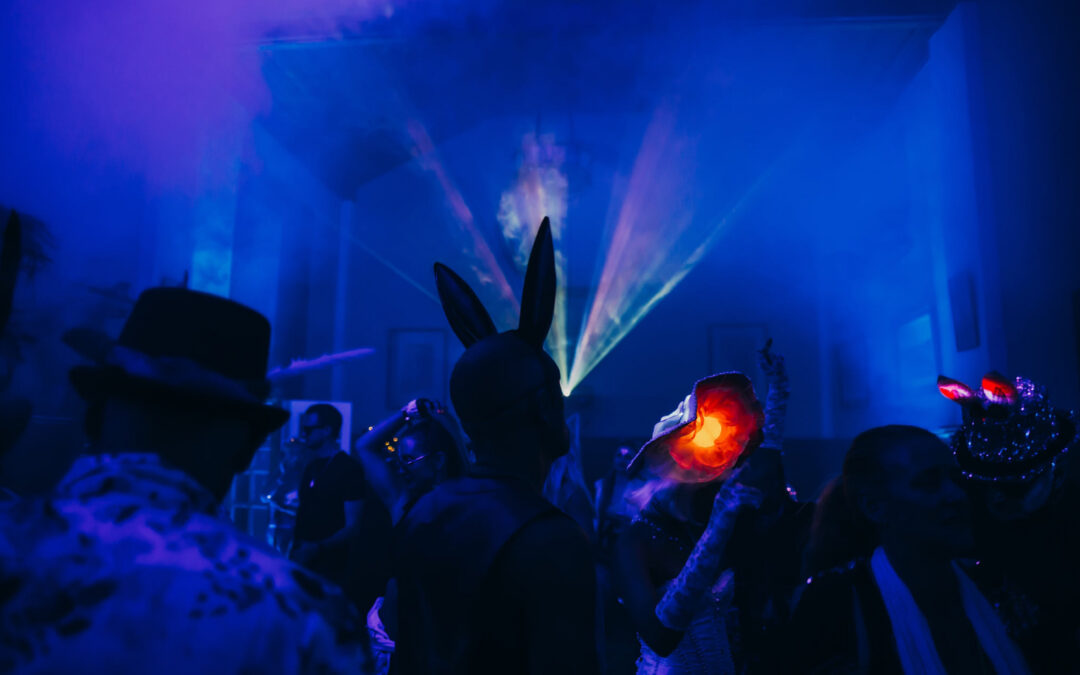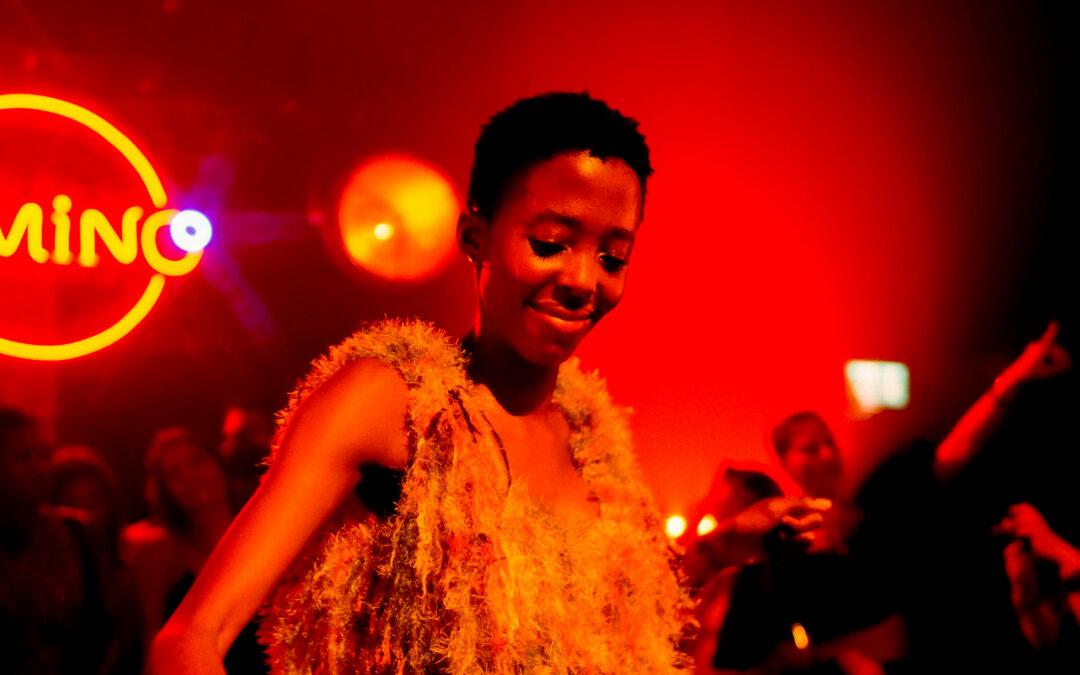On the 14th of November, I had the absolute privilege of representing CEC and attending a beautiful opening night of the Fashion Accounts, at Museum Africa in Newtown, Johannesburg. According to co-supporting institution the African Fashion Research Institute (AFRI), Fashion Accounts is: “a series of installations that explore and challenge the practices and rituals of collecting, archiving and memorialising through dress”.
Full disclosure, I almost jokingly tweeted before the opening that I was “Covering a VIP opening event for a magazine–momentarily back to my Carrie Bradshaw lifestyle lol” and this just really speaks to how well-supported this exhibition opening was by local industries and by global South African luxury designers such as Thebe Magugu, Wanda Lephoto (who was also a curator) & Sindiso Khumalo. Further commissions were also presented by The Sartists and Mimi Duma–all curated by the project trio of Wanda, Erica de Greef, and Alison Moloney.
I’d like to unpack the relevance of an exhibition of this nature; why does the venue and the concept of a “museum” even matter?
It is no secret that albeit South Africa having risen as the “democratic phoenix” it is today – it has come at the expense of many prior to us and at a cost which has been shouldered by many of our predecessors. I liken our country to a phoenix specifically, as they are rare but powerful magical birds which possess the ability to burst into flames and be reborn from the ashes. And as a result of this unique trait–they can live to a very old age. Like the phoenix itself, South Africa has managed to revolutionise post-Apartheid into a rich multicultural nation governed by a great Constitution.
Imagery Courtesy of French Institute of South Africa
The Sartists portrait of Wanda Lephoto, 2024. Photography by Paul Shiakallis
From a range of beliefs surrounding Freedom and emancipation of the African content, emanating from the likes of Pan-African struggle heroes such as Steve Biko, Winnie & Nelson Mandela, Oliver Tambo, and many more, this has managed to filter through into a republic which now boasts twelve official languages only thirty years into its tenure of democracy. Famous ANC legend and Apartheid struggle veteran, Oliver Tambo, during the peak of Apartheid once said: “The fight for freedom must go on until it is won; until our country is free and happy and peaceful as part of the community of man, we cannot rest.”
This is where the importance of archiving kicks in, preserving our bespoke stories and authentic narratives within a culturally appropriate and non-insensitive way. A method we can achieve this through is unpacking rituals of memorialising through dress. As co-curator Wanda Lephoto says: “It is in the gaps, the absences, the fragments that we need to look to find ourselves when our stories are not acknowledged in the record.
Whilst I strolled throughout the event installations I pondered to myself, what defines a museum and what is its primary purpose? According to Britannica – “a museum is an institution dedicated to preserving and interpreting the primary tangible evidence of humankind and the environment.” This is where I believe the true vitality of Fashion Accounts work lies – confronting what the contemporary meaning of a museum is for the average South African today. AFRI further mentions:
“Fashion Accounts documents the ongoing collaboration between South African fashion designer and artist Wanda Lephoto, London-based fashion curator and researcher Alison Moloney, and South African fashion curator and academic Dr Erica de Greef. Together, they confront the violent absence of black South African fashion histories within museum collections. They have worked closely with the museum’s existing display props and materials to make visible these tools, limitations and challenges.”
Learning more about the work of The Bernberg Costumes & Textiles Collection, which contributed a significant part of the museum collection (around 16 000 predominantly European, white-owned fashion objects, either imported into South Africa or locally made) and seeing the artefacts live in-person kind of felt like this weird double-edged sword – considering how dark our history is with colonialism as South Africa. These collected items span from the mid-1700s to the early 2000s, and included shoes, buttons, hats, ties, day and evening dresses, suits, wedding and mourning dresses, and more.
I think the dichotomy of emotions I felt at the exhibition whilst viewing these white-owned historical artefacts can be summated by the following quote by the Fashion Accounts team in the build-up to this historical event:
“The seemingly ‘innocent’ objects in the fashion collections are deeply problematic, embodying both moments of beauty and traces of trauma. These items reflect the colonial power structures that once served as tools of oppression, yet they also offer a means to surface Afrocentric memories and stories often left untold.”
Taking a closer look at the exhibition deliverables from the participants–the curators’ emphasis was clearly targeted towards showcasing innovative young black multidisciplinary creatives who are thriving within their respective artistic disciplines yet continuing to stay authentic to their roots as African-born Global entities. Sindiso Khumalo, a sustainable textile designer based in Cape Town, presented ‘The Jagger Collection’ as a homage to The University of Cape Town Jagger African studies Library that was caught in a mountain fire in April 2021. Sindiso showcased an illustration of Charlotte Maxeke, which was hand illustrated by artist Sinalo Ngcaba. Former LVMH Prize winner Thebe Magugu presented a mirage of custom TM items (such as Thebe Magugu couches) all emblazoned in varieties of their most-recent Heirloom Project pattern.
Tennis Series portrait of Tebogo Ribane, 2014. Photography by Andile Buka
Imagery Courtesy of French Institute of South Africa
South African natural hair stylist, Ncumisa Duma or “Mimi”, also presented an impressive body of work which stood its own ground within the museum exhibition. Some of my favourite work of the night though definitely belonged to The Sartists, as they revisited and relaunched a collaborative project from a decade ago in honour of Fashion Accounts. The Sartists mention:
“In 2014 The Sartists launched the collaborative project entitled The Sports Series, which re-enacts and reclaims black South African history that segregation, the apartheid regime, and the archives excluded. The performative act of self-portraiture with Wanda Lephoto, Andile Buka, Kabelo Kungwane, and Xzavier Zulu represented within the photographs and embodying this absent history reveals the hauntings of colonialism. Unseen work from this series will be on display, alongside a new commission to celebrate 10 years of this multidisciplinary collective.”
So the outcome of a successful event such as Fashion Accounts allows for more poignant discussions to filter into the larger room and for more conversations to be had surrounding the lack or absence of archiving for Black South African fashion histories within museum collections. Some may argue–should we want our authentic native stories told within such colonised spaces? Well to that I say: dismantling colonialism within the Museum space for oncoming South African generations speaks to the relevance of the work which Fashion Accounts is doing. Through the ongoing support of the French Institute of South Africa (IFAS) and The African Fashion Research Institute (AFRI), their goal can be audacious and the view long-term.
In closing I leave you with a quote from co-curator Erica de Greef: “There is an urgent need to decolonise museums, and their classification and representation practices. Fashion objects in museum collections offer powerful visual and material pathways for remembering more diverse South African histories, identities and subjectivities.”
Written by: Odwa Zamane
For more news, visit the Connect Everything Collective homepage www.ceconline.co.za

